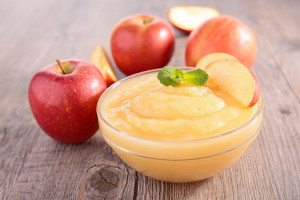How Elders Can Fit More Fruits and Veggies Into Their Diet
Elder Care in Rockwell NC
Seniors receiving elderly care typically eat pre-packaged food because it is easy and convenient. The truth is, eating a healthy diet can be just as simple to put together as popping an already-
Do not skimp on breakfast
There are a variety of ways healthy fruits and vegetables can be incorporated in the breakfast for seniors accepting in-home care. Add fresh berries to oatmeal or cereal, make a smoothie with spinach discretely added, or have an omelet filled with their favorite veggies. By having a hearty breakfast in the morning, your loved one will be less likely to over indulge throughout the day.
Keep healthy snacks on hand at all time
When you and your loved one are out on the town and hunger hits, the worst thing you can do is stop for a quick bite to eat at a fast food restaurant. If you know you will be leaving the house with the elder in your care, plan accordingly. Pack carrot sticks, apple slices, or other easy fruits and veggies to for snacks.
Add Vegetables to Dinner
Salads are an excellent way to get plenty of your loved one’s favorite veggies in their diet. Some people also prefer to add fruits to their salads, such as apples, strawberries, and grapes. If they are not big on salads, add them to a stir fry or their favorite dish.
No need to skip dessert
Just because your loved one is trying to eat healthier does not mean they should avoid dessert altogether. Frozen grapes make a delectable treat on a warm summer day or you can enjoy a bowl full of mixed berries and yogurt. Dessert can still be enjoyed, but making smart, low-calorie options is the key to helping aging adult, and you, eat healthier.
Shopping tips
If you are providing senior care for a friend or family member, you may also be in charge of the grocery shopping. Each food from the produce aisle has a different health benefit. Keep these facts in mind as you roam the aisles in the grocery store:
- Vitamin A source: This nutrient is important for vision health and a strong immune system. Bright orange vegetables, tomatoes, red peppers, orange fruits, and leafy greens contain plenty of vitamin A.
- Vitamin C source: Vitamin C will help protect the immune system against infections and illnesses. It can be found in citrus fruits, broccoli, tomatoes, peppers, and leafy greens.
- Folate source: Folate has been proven to reduce the risk of some diseases. Cooked dry beans, oranges, and spinach are all great ways to intake this nutrient.
- Potassium source: Kidney usage often declines with age, increasing the body’s urine output. Consuming about 4,700mg of potassium a day will reduce the risk of kidney stones, lower salt sensitivity, and decrease blood pressure. Potassium can be found in bananas, baked white or sweet potatoes, soy beans, and cooked dry beans.
If you or an aging loved one are considering elder care in Rockwell, NC, contact the caring professionals at TenderHearted Home Care today. Call us at (704) 207-0265
Source
Healthy.gov. “Older Adult Health Facts: Eat Plenty of Fruits and Vegetables.”
- Seniors and Unreported Falls - May 22, 2025
- Six Areas Your Loved One May Need Help With During the Early Stages of Alzheimer’s Disease - May 8, 2025
- What Harms Senior Mental Health? - April 23, 2025


